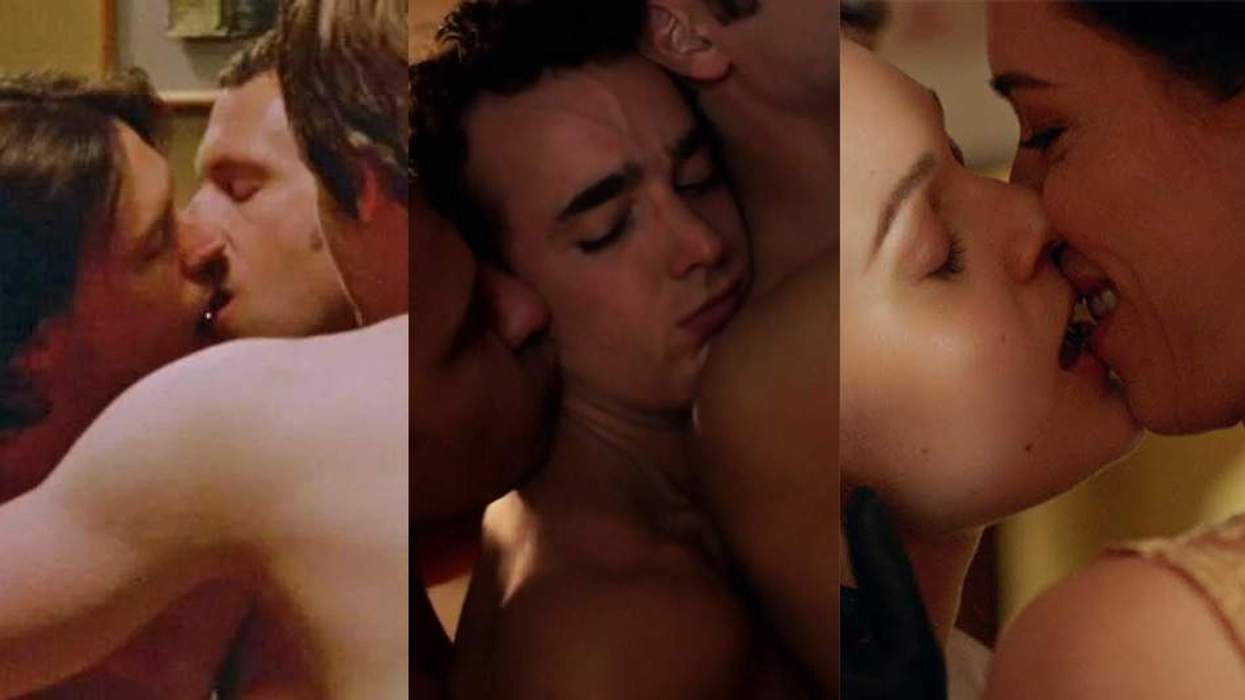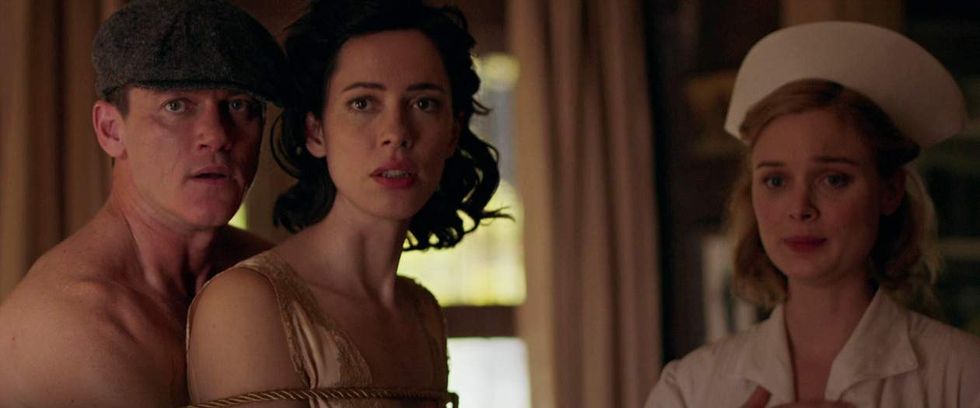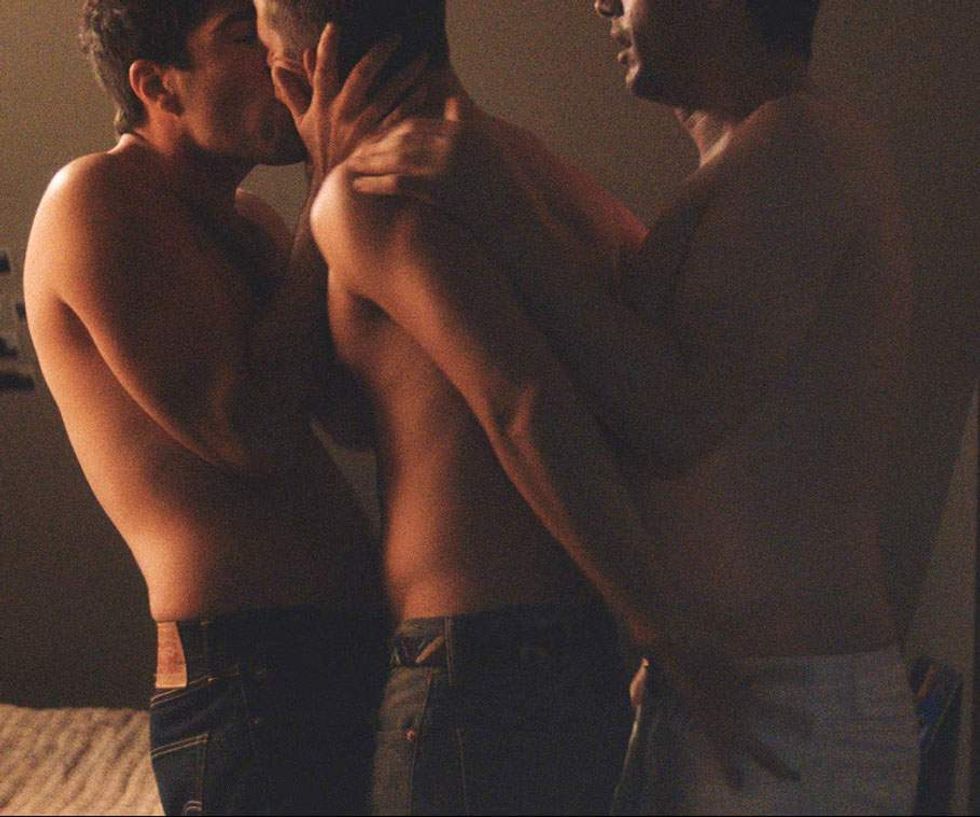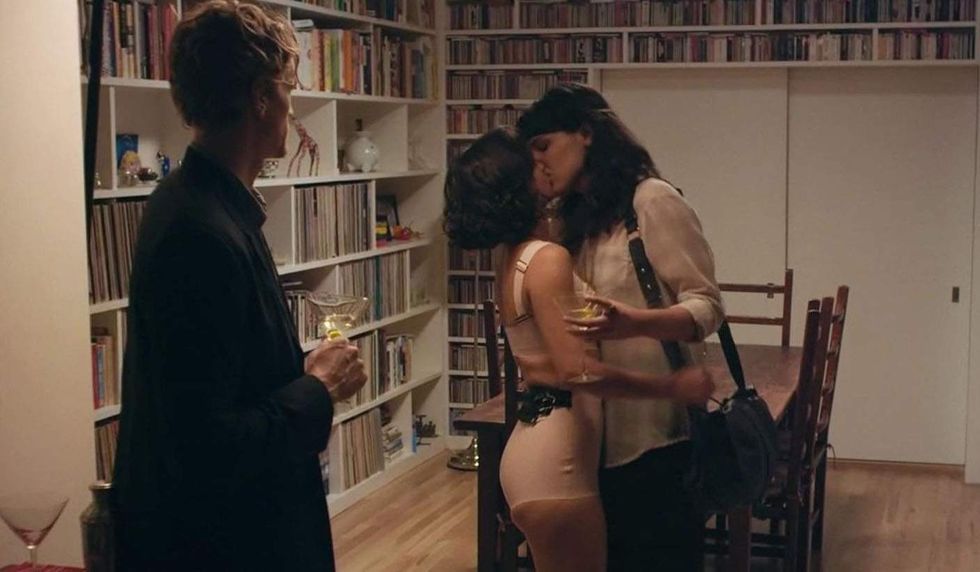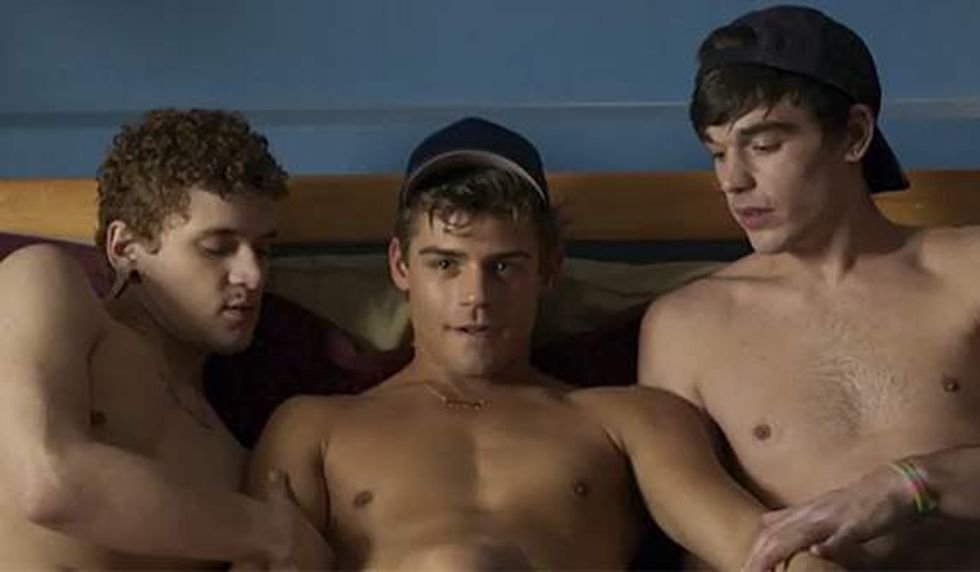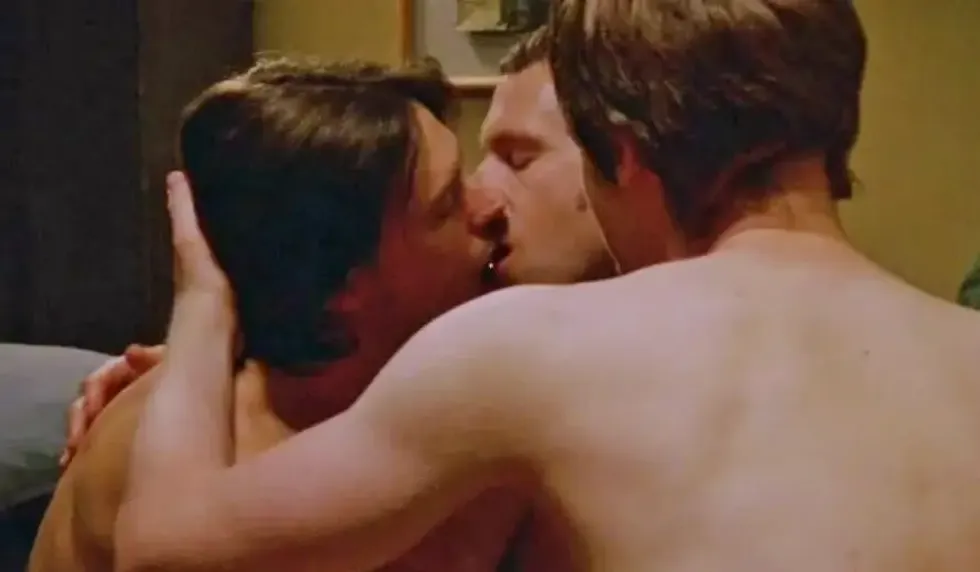Before the Stonewall riots, gay liberation was still happening on-screen.

Warner Brothers, Metro-Goldwyn-Mayer
The Stonewall riots of 1969 are often seen as a defining moment in the gay liberation movement, but before that, these filmmakers were fighting for LGBTQ+ representation on-screen. Though they often faced arrest for censorship laws, and their films were sometimes banned, these early examples of queer representation survived. Here are 15 pre-Stonewall films you need to see.
1) Sex in Chains
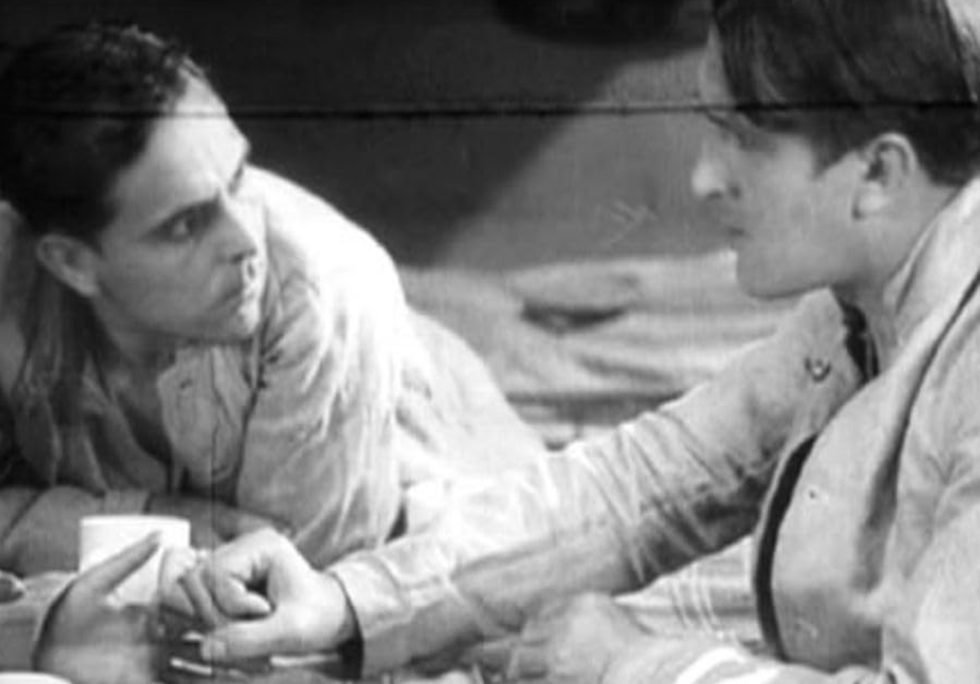
Essem-Film
Sex in Chains is a 1928 about a young man, Franz Sommer (William Dieterle), who's convicted of manslaughter and sentenced to prison. Once there, he bonds with his cellmate, Fabrikant Rudolf Steinau (Gunnar Tolnæs) and grows more intimate with him. After he's released, Franz's wife, Helene (Mary Johnson) worries about how prison has changed him. This was the first film to address gender confusion in jail and is one of the top gay-themed films of the German silent era.
2) Tea and Sympathy
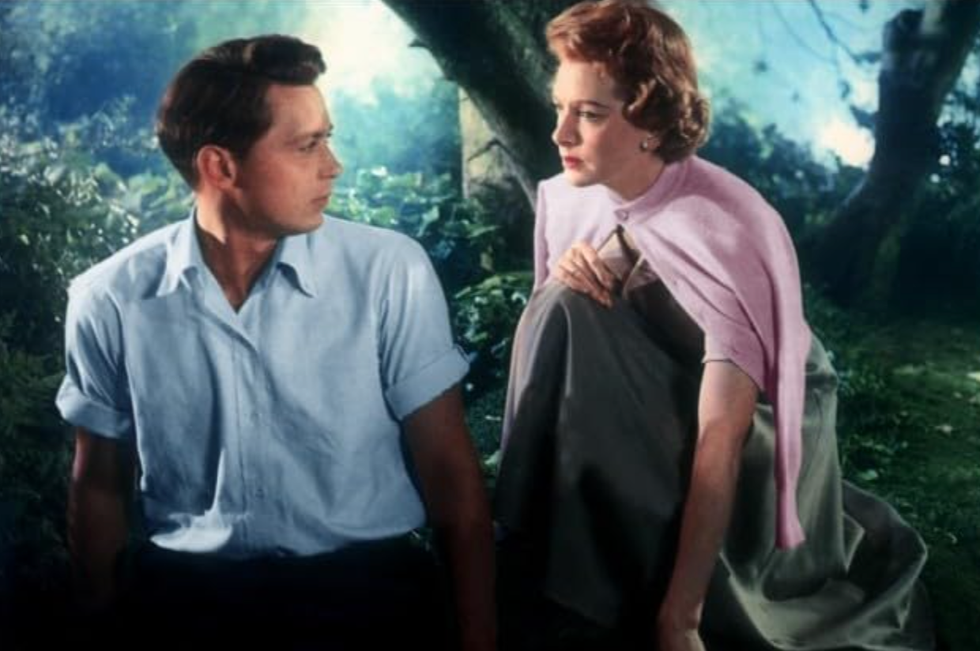
Metro-Goldwyn-Mayer
In the 50s, being gay was not only viewed as the ultimate sin, but also an affliction worse than death. The 1958 film Tea and Sympathy makes the viewpoint clear as we follow on the journey of 17-year-old Tom Robinson Lee (John Kerr), who's just joined a boy's prep school. The boys there make fun of him for his "sister-boy" attitude due to his lack of interest in the more "manly" pursuits of his peers. Laura Reynolds (Deborah Kerr), the wife of headmaster Bill (Leif Erickson), invites him over for tea and winds up falling in love with him, while Tom struggles to make peace with his sexuality. The movie is based on a Broadway show of the same topic, and John Kerr, Deborah Kerr, and Leif Erickson all reprised their original roles for it.
3) Rope

Warner Brothers
Alfred Hitchcock had some underlying homoerotic themes, but his 1948 Rope was his most explicit of them all. In the film, two men, Brandon (John Dali) and Philip (Farley Granger) commit a murder and then host a dinner party while their victim is hidden in a chest tied with a rope. The heavily implied romantic relationship between the two leads is still discussed today, and as it was made during Hollywood's Hays Code era, positive depictions of LBTQIA+ characters were forbidden in the media.
4) Rebel Without a Cause

Warner Bros
Rebel Without a Cause is a classic 1955 film starring James Dean as Jim Stark, who bonds (and falls for) his disturbed classmate, Plato (Sal Mineo). Homosexual representation was still taboo at the time, but the clear tension between the two was palpable. Plus, Mineo went on to be one of the first Hollywood actors to publicly come out and even stated that he played the character as gay.
5) The Haunting

Metro-Goldwyn-Mayer
Nowadays, you may be familiar with the Netflix adaptation of Shirley Jackson's classic horror novel The Haunting of Hill House, but the 1963 horror film The Haunting did the story justice first. Stellar performances from Theo (Claire Bloom) and Eleanor (Julie Harris) featured LGBTQ representation when it was still hardly found anywhere on the screen. Theo is openly gay and forms a relationship with Eleanor during the investigation of the haunting.
6) The Children’s Hour

The 1961 film The Children’s Hour is based on a play of the same title by Lillian Hellman. Former college classmates Karen Wright (Audrey Hepburn) and Martha Dobie (Shirley MacLaine) decide to open a private school for girls. When a student accuses the pair of being lesbian lovers, their lives are turned upside down. Though they aren’t actually lovers, one is a lesbian with a crush on her coworker.
7) Mädchen in Uniform

Mädchen in Uniform was released in 1931 in Germany and 1932 in the United States. The film follows Manuela (Hertha Thiele), who is sent to a boarding school after the death of her mother. Manuela falls for a beautiful young teacher, Elizabeth von Bernburg (Dorothea Wieck), and scandal ensues.
8) Flaming Creatures

Flaming Creatures is a 1963 experimental film that was seized by police at a 1964 screening. Jonas Mekas, Ken Jacobs, and Florence Karpf were charged for screening the film, and it was found to be in violation of New York’s obscenity laws. The film shows performers in elaborate drag over disconnected scenes including an earthquake and an orgy. Mekas and Susan Sontag were ardent supporters of the film.
9) Different from the Others

Different from the Others was a 1919 German film co-written by Richard Oswald and Dr. Magnus Hirschfeld with the aim of protesting the law that made homosexuality a criminal offense. The film portrays a successful violinist who falls in love with a male student. He is blackmailed by someone threatening to expose him. Hirschfeld argues that homosexuality is normal throughout the film.
10) The Trials of Oscar Wilde

The 1960 British film The Trials of Oscar Wilde covers the libel and criminal cases of Oscar Wilde. The film was met with critical praise and won the Golden Globe for Best English-Language Foreign Film.
11) Victim

The 1961 British thriller film Victim had a controversial release, and failed to obtain a seal of approval from the American Motion Picture Production Code. The film follows a married lawyer who is avenging the death of his male lover by tracking down a blackmailer who is targeting gay men in London.
12) A Song of Love

Jean Genet’s only film, Un chant d’amour (A Song of Love) is a 26-minute short set in a French prison where two prisoners in adjacent cells carry out an erotic relationship that’s never consummated. The film was released in 1950 but was long banned for erotic gay content
13) Olivia

Olivia, also know as The Pit of Loneliness, is a 1951 French film based on the semi-autobiographical novel of Dorothy Bussy. The film follows Olivia, an English teenager who becomes the center of a jealous love triangle between Mademoiselle Cara and Mademoiselle Julie. The film is seen as a landmark in lesbian representation.
14) Winter Kept Us Warm

While the gay subtext in Winter Kept Us Warm is coded, the Canadian film was based on director David Secter’s experience of falling in love with a fellow male student. The 1965 film follows Peter and Doug who develop a quasi-romantic relationship at University of Toronto, and was the first Canadian film screened at Cannes Film Festival.
15) The Killing of Sister George

The 1968 film The Killing of Sister George, directed by Robert Aldrich, follows June Buckridge (Beryl Reid) who plays a character named Sister George on a British soap opera. When the show’s ratings decline and she loses her job, her life begins to fall apart. June lives with Childie (Susannah York), but June’s producer Mercy Croft (Coral Browne) comes between them. The film was given an X rating by the MPAA for a sex scene between Childie and Mercy.



























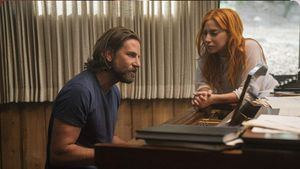
















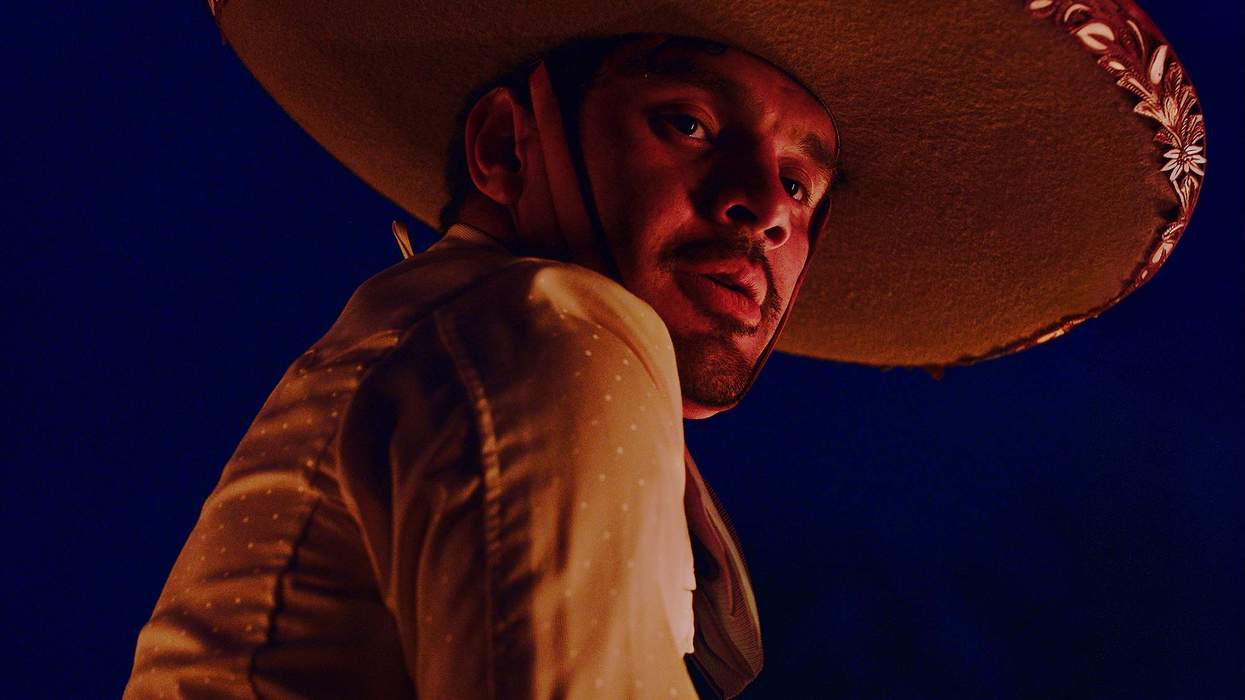







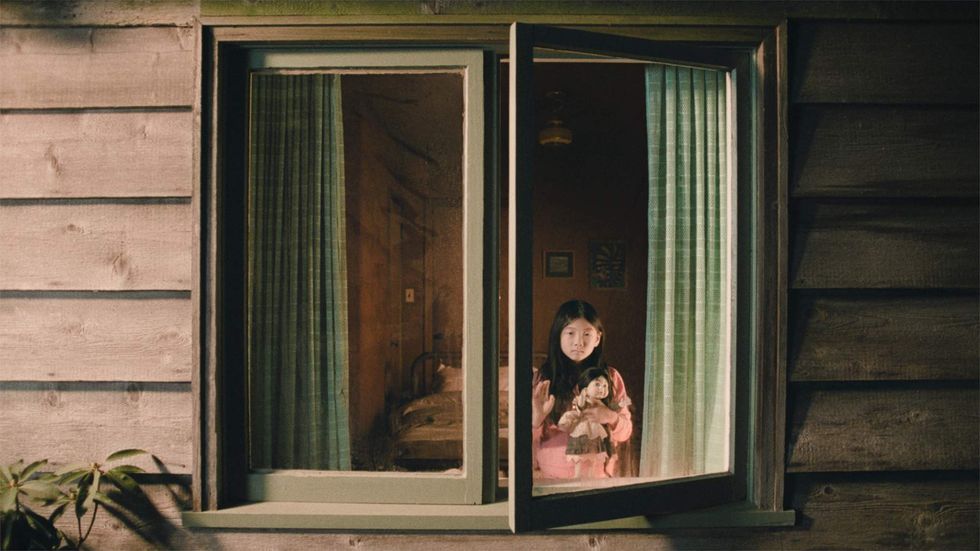
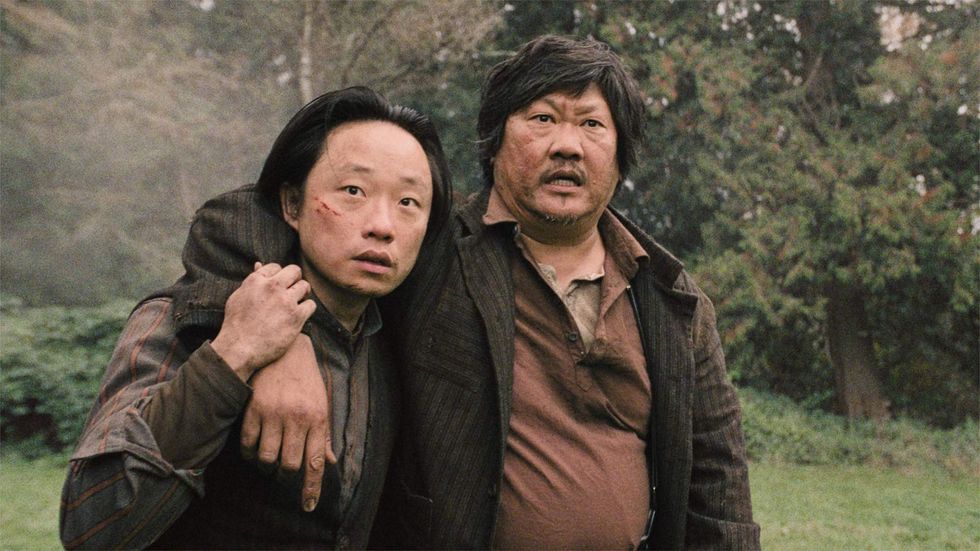

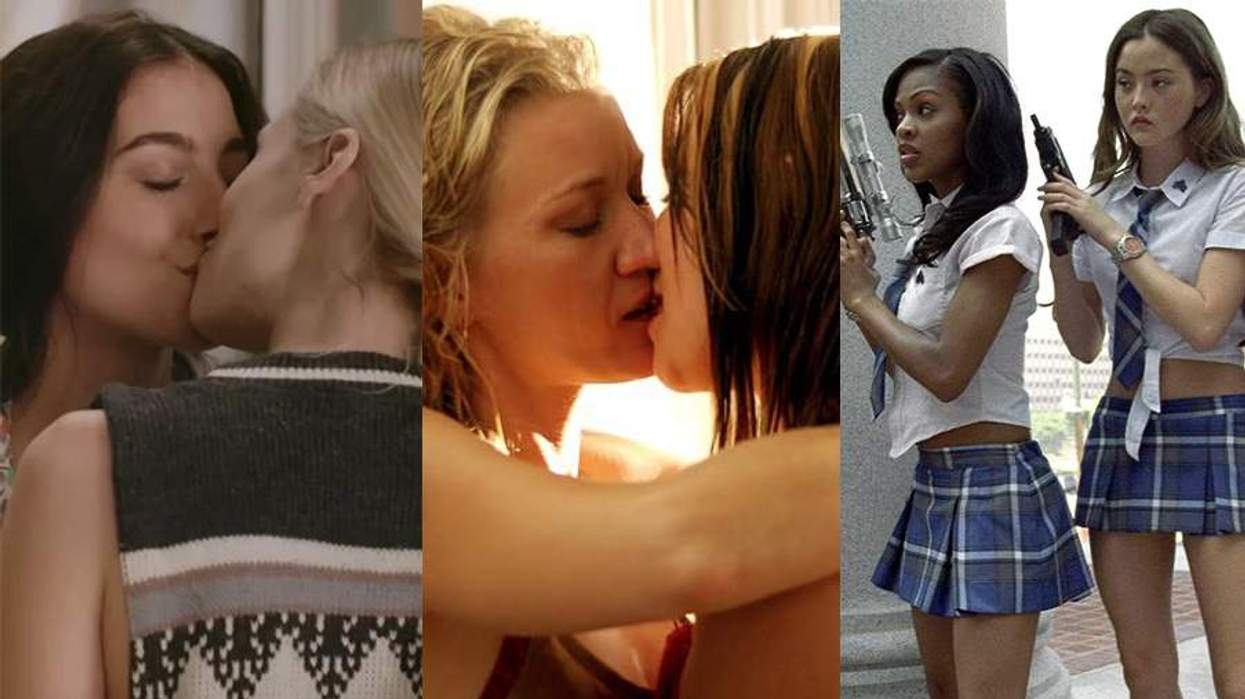
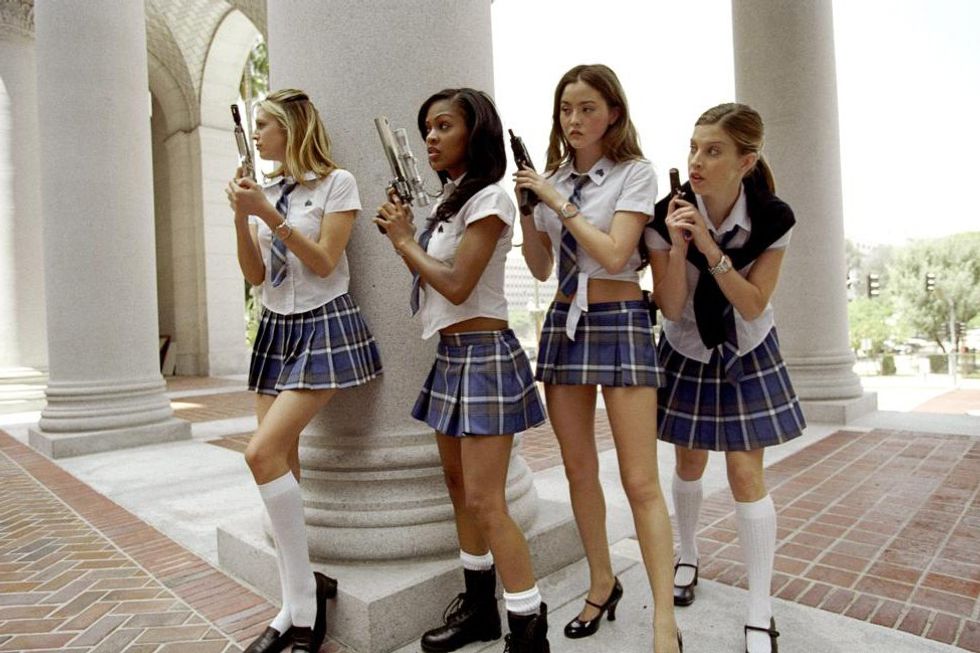 D.E.B.S.Warner Brothers
D.E.B.S.Warner Brothers Girl Trash: All Night Long Courtesy of POWER UP
Girl Trash: All Night Long Courtesy of POWER UP Better than Chocolate Lionsgate
Better than Chocolate Lionsgate
 Jessica and Helen, Kissing Jessica Stein
Jessica and Helen, Kissing Jessica Stein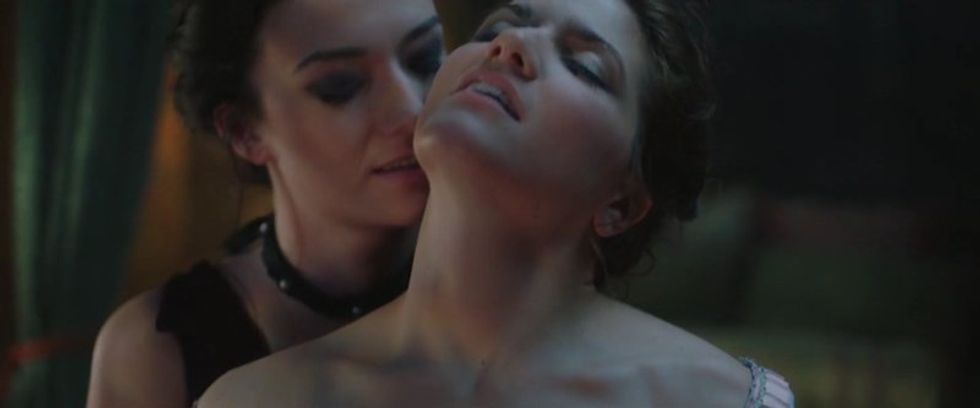 The Carmilla MovieFilm Movement
The Carmilla MovieFilm Movement
